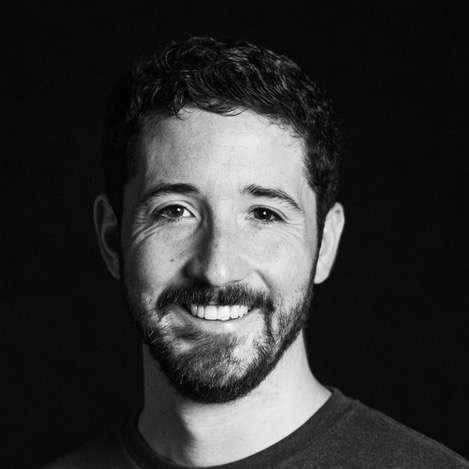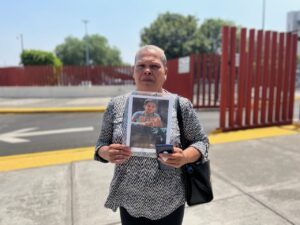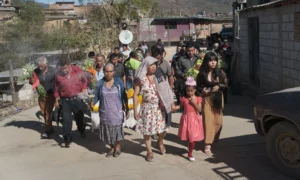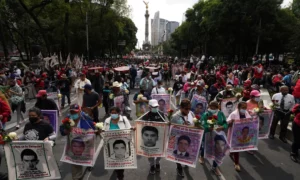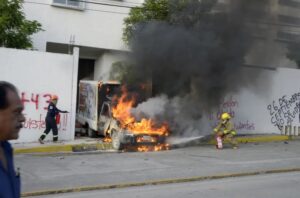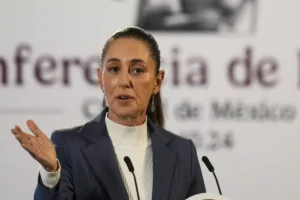What woke María Zapata Escamilla was the sound of shattering glass. Armed men in military fatigues had burst into her home: they dragged her disabled husband outside, along with her 14-year-old son, still in his pajamas. Then they drove away into the night.
Two weeks later, her husband’s brutalized body turned up, along with nine others. But after more than a year, her son remains missing.
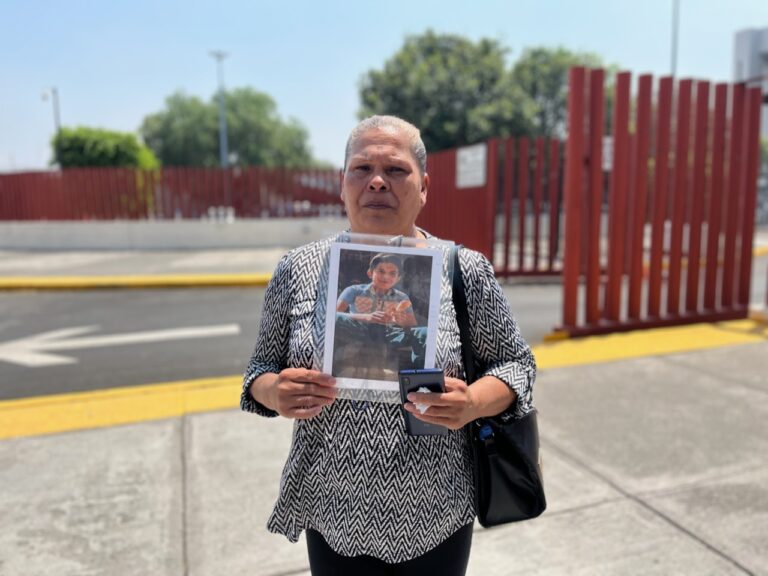
“I was left navigating alone,” she said through tears in a recent interview. “If they told me, ‘Give up your life in exchange for your son,’ I would give it.”
Zapata’s ordeal has become terrifyingly common in Fresnillo, a city in the central Mexican state of Zacatecas that is currently being torn apart by a battle between the Sinaloa and Jalisco cartels. More than 70 people went missing in the mining city between January and March – nearly one person a day, and a fivefold increase compared with the same period in 2020.
Over four days in February, 10 men vanished without a trace.
“Every day there are kidnappings, every day there are shootouts, every day there are deaths,” said Zapata. “It’s terror.”
The epidemic in Fresnillo mirrors a nationwide trend: after dipping in 2022, disappearances across Mexico surged by almost 30% in the first three months of this year, compared with the same period last year, government data shows.
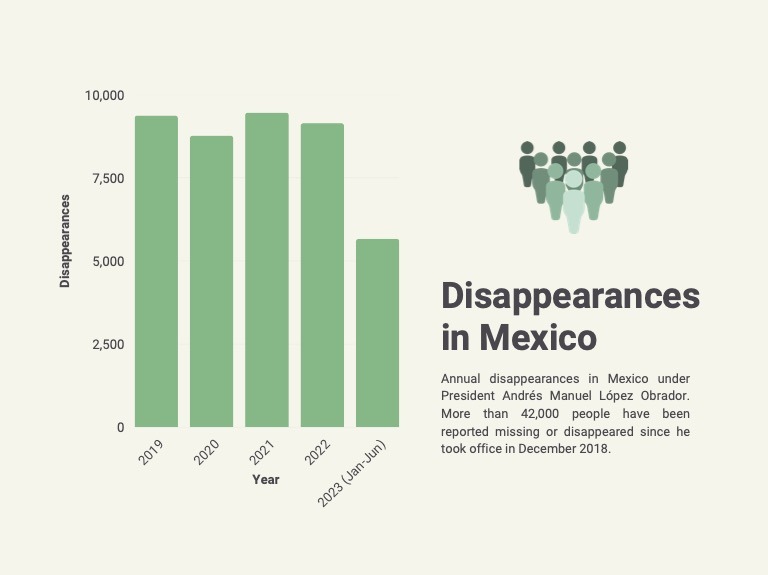
The trend is yet another testament to the failure of President Andrés Manuel López Obrador’s security strategy: while murders have decreased marginally since he took office, the surge in disappearances makes clear that violence persists. Often, criminals dispose of bodies in unmarked graves, burn them to ash or dissolve them in acid: With no body, there is no evidence of a crime, and little chance of justice for grieving families.
Zacatecas offers a devastating case study. Once relatively calm, the strategic state, which borders eight others, has become fiercely contested by criminal groups. Murders have rocketed; bodies turn up regularly; cartels block roads and set trucks on fire.
The state carries significant political weight for López Obrador, popularly known as Amlo. Zacatecas is governed by the Monreal family, a powerful dynasty at the heart of the president’s Morena party. Ricardo Monreal, a federal senator, is a presidential hopeful. His brother David is state governor, while his other brother Saúl is mayor of Fresnillo.
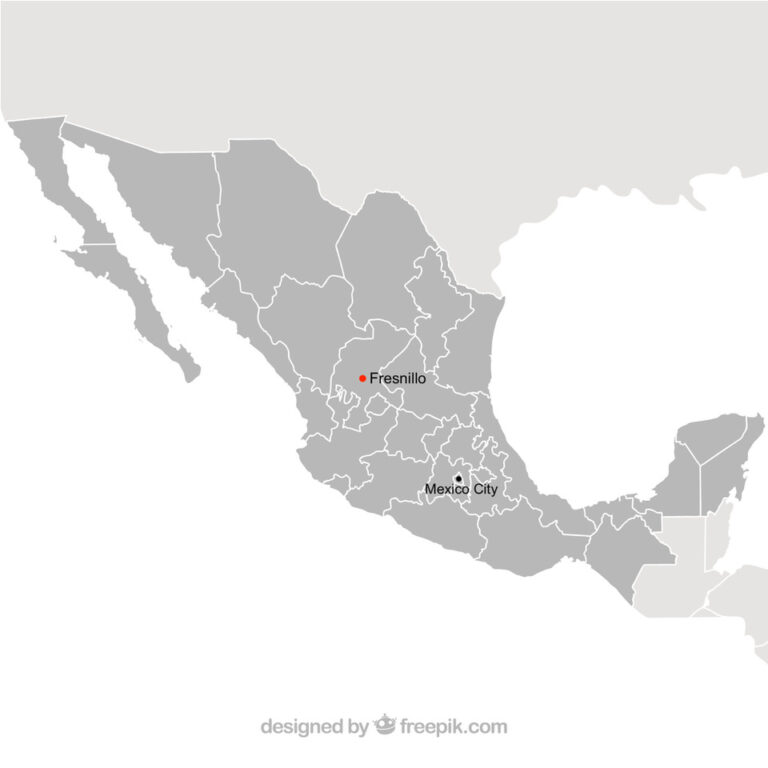
The violence has made Zacatecas a key focus for the federal government. In 2021, the defense ministry announced that more than 400 national guard and troops would be sent to the state. This February, 600 more soldiers were deployed.
But residents say the government’s efforts have done little to dampen their terror – for many, the state remains a hellscape. Fresnillo in particular is experiencing a frightening new reality: All over the city, people, particularly young men, are being snatched from their homes, from their cars, sometimes in the middle of the day.
“Zacatecas is overwhelmed,” said Leticia Castañeda Cruz, whose nephew was taken from his car in broad daylight, leaving behind his infant daughters. “We know them, Senator Ricardo Monreal, and David and Saúl, and that whole family that has always governed us. But they’ve shown us that they’ve failed.”
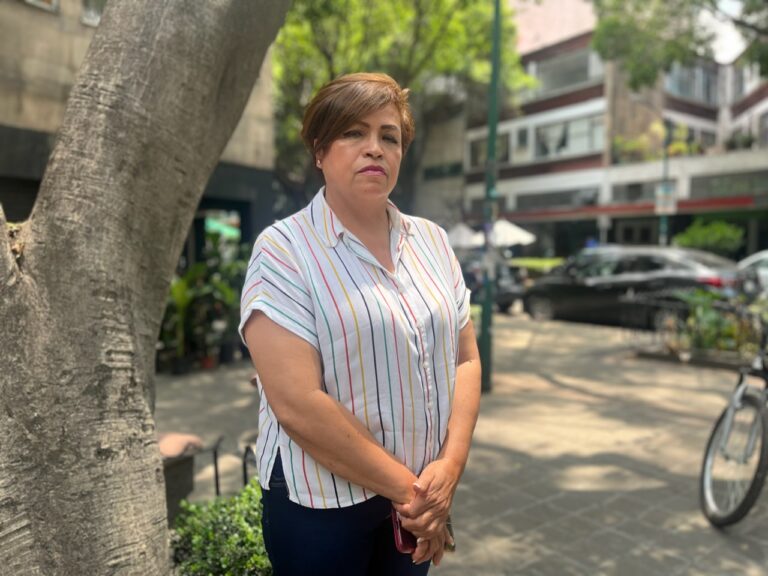
Spokesmen for the Zacatecas governor, David Monreal, and Fresnillo mayor, Saúl Monreal, did not respond to repeated interview requests.
In an interview, Senator Monreal said violence in Mexico was a nationwide issue and must be addressed as such. “To think that a city mayor can resolve the issue of missing persons, or to think that a governor has the capacity to fight organized crime is to not know the country,” he said, adding that his brother’s predecessors had let criminals go unchecked.
“Those organized crime groups were allowed to settle in, and now it’s very difficult to eradicate them.”
According to Claudio Lomnitz, an anthropologist at Columbia University who teaches a course on forced disappearance, kidnapping has long been used by organized crime in Zacatecas as a way to terrorize the population and maintain control, to raise funds with ransoms, and as a means of gaining new recruits.
But families of the Fresnillo victims say they have not received ransom demands – or if they have, they have turned out to be scams.
“What I have seen in the case of Fresnillo is that there is a lot of forced recruitment,” he said. “Because on the one hand they’re not asking for a ransom and on the other hand because they go in and take several people at once, and that doesn’t make sense as a kidnapping.”
In any case, Lomnitz added, “there’s no way that this exists without a relationship between organized crime and the state.”
Fed up with inaction from the local government, a group of women with disappeared relatives, including Zapata and Castañeda, recently traveled to Mexico City for a meeting with a federal congresswoman from the president’s Morena party.
“It makes you want to cry,” said Castañeda. “All the mothers and all the relatives of the disappeared feel the same way: why is nothing being done for us?”
After waiting outside the imposing Congress building for about an hour, the women were led into a small gray office, crowding together among the chairs and couches.
One by one they told their stories, often through tears: Martina García Aviña’s son, taken away before dawn last November; Luz Bernal Orozco’s brother, nabbed on 24 February; Patricia Castillo Castoren’s nephew, snatched from his grandmother’s house the next day.
“It feels like a knife in your heart,” said Bernal of having a disappeared relative. “It’s worse than death because of the uncertainty we feel.”
When asked afterwards about the government’s response to violence, the Morena congresswoman, Erika Vanessa del Castillo, said the president had recognized forced disappearance as a humanitarian crisis.
“This is what was given to us, what we inherited,” she said, echoing a response often given by Amlo himself. “It’s impossible to solve this from one day to the next.”
López Obrador has taken some steps to address the issue: The president increased funding for the National Search Commission, charged with looking for the missing. In 2020, the commission launched an online database of missing persons, providing the most accurate picture of the issue to date. The number of state-level search commissions has also tripled.
But violence continues to spiral, with more than 30,000 people murdered every year of López Obrador’s term. The efforts have also failed to make a meaningful dent in the epidemic of vanishing people: since Amlo took office, more than 40,000 people have been reported missing.
Often, families are left to navigate a confusing bureaucracy between local police, dysfunctional state prosecutors and local search commissions, none of which seem to provide answers. According to the United Nations, as of November 2021, only between 2 and 6% of forced disappearance cases had resulted in prosecutions. Only 36 convictions have been handed down at the federal level.
At the meeting in congress, representatives from the National Search Commission arrived to check the missing had been entered into the national database – Castañeda could not find her nephew in the system. As it turns out, his information had been entered incorrectly: his birthday and height were wrong, his last name misspelled.
“That’s three characteristics that lead me to believe it’s not the person being searched for,” she said. “We need competent authorities.”
The women left Mexico City disappointed. Arriving back in Fresnillo, there was more devastating news: that afternoon, García Aviña’s second son had been taken by armed men while driving his daughters home from school.
“It was my birthday,” she said later. “I feel so desperate, like I want to go out and look for them – but where can I look?”
López Obrador traveled to Fresnillo in April for the inauguration of a new hospital. The relatives of the disappeared took the opportunity to hold a protest.
“Never before has a president addressed the problem of insecurity and violence as we are currently doing,” said Amlo, in apparent response to the protesters’ cries. “I understand very well the concern and desperation that relatives have for their disappeared.”
But the president did not meet with the victims’ families, sparking frustration among desperate relatives. García Aviña’s granddaughter chased after Amlo, throwing a rock at his car as it left.
“I felt defeated because I had so much faith in him,” García Aviña said, of the president she once championed. “I had hoped he would help us.”
Oscar Lopez, a 2023 APF fellow, is examining the huge number of disappeared people in Mexico during his fellowship year.

